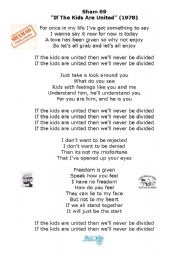
Then, in 2013, Ross recorded a song that seemed to endorse date rape. Why is it objectionable for that same subject/idea to appear in song?ģ) The popular rapper Rick Ross has cultivated a stage persona that his fans know is fraudulent – he raps from the perspective of a drug cartel kingpin, but in reality, he worked as a corrections officer before launching a career in music. The killing of police officers is depicted in film and on television all the time. But perhaps not enough discussion addressed why our society objects to similar messages when they materialize in different types of art. The song generated widespread backlash from law enforcement officials and politicians, and a national dialogue about censorship ensued. Yet the band continues to perform this song in concert without facing any kind of significant protest – presumably because… it’s the Stones! Should an artist’s public stature change what they’re allowed to “get away with”?Ģ) The heavy metal band Body Count, fronted by the rapper Ice-T, made headlines in 1992 with their hit single “Cop Killer” – a protest anthem against police brutality.

Question #4: How should we engage objectionable lyrics?ġ) It’s difficult to imagine a contemporary pop act releasing a song with lyrics as outrageous as those of “Brown Sugar” by the Rolling Stones. Below is the guiding question accompanied by a few examples that Richards finds particularly salient, followed by our contributors’ responses. How we should engage objectionable lyrics is the third of “ the five hardest questions in pop music”, as described recently in the Washington Post by pop music critic Chris Richards. Do those lyrics affect whether we should endorse the music or support the artist? Or is it okay – because it’s fictional, because it’s catchy, or because we know the artists don’t share those views? The lyrics to some of our favorite songs are, upon moral reflection, completely horrific. Today we ask how we should engage objectionable lyrics.

Third was whether selling out is still possible.
#Rancid if the kids are united lyrics how to#
Second was how to respect the wishes of dead artists.
#Rancid if the kids are united lyrics series#
Over the next several weeks, we’ll present a series of roundtable discussions based on Richards’ “ five hardest questions in pop music”: “cultural appropriation, problematic lyricism, selling out, the ethics of posthumous listening, and … separating the art from the artist.” AFB has rounded up several thinkers working in these areas to see what they have to say about each question. Richards has provided AFB with key examples to draw out the problems and complexities of each debate.

This edition of Artworld Roundtable appears in collaboration with Chris Richards, the pop music critic for the Washington Post.


 0 kommentar(er)
0 kommentar(er)
